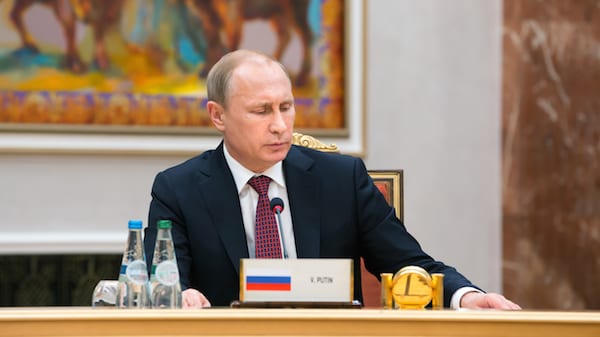On Sunday, August 14, 2016, Donald Ossewaarde, U.S. citizen and pastor in Oryol, Russia, was arrested in his house while holding a Bible study for the church he leads. Ossewaarde was fined 40,000 rubles (about $600) and was advised by his court-appointed attorney to leave the city.
Ossewaarde was found guilty of “conducting missionary activities in violation of a new law that took effect on July 20, 2016,” according to a statement published on his website. In court, Ossewaarde was also accused of “posting notices in public places, inviting anyone interested in studying the Scriptures to turn to him for help” and failing “to give the authorities written notification when he began his religious group activities.” The law this refers to is a newly revised set of anti-terrorism laws that severely limits the freedoms of protestants and foreign missionaries in the country whose government maintains the ubiquity of the Russian-Orthodox church with an iron fist.
Independent Baptist missionaries, Ossewaarde and his wife, Ruth, have lived in Russia since 2002. The couple led a church out of their home in Oryol, a city about 224 miles south of Moscow and home to about 320,000 people. At the time of the arrest, they were leading about 15 people, whom he has since referred to the Russian Baptist Church, according to the Baptist Press. According to Ossewaarde, the group is “devastated” by their having to disband.
Ossewaarde “is convinced that the law is on his side, and that he is the victim of an improper application of the law, and perhaps xenophobia,” according to the press release on his website. Still, Ossewaarde insisted Ruth go home to the U.S. while he undergoes the appeal process. While speaking with Baptist Press, Ossewaarde explained that the law, as it is written, is “ineffective,” and shouldn’t apply to him since it “limits missionary activity by religious organizations in particular, and he operates independently of any group.”
Ossewaarde gave the Baptist Press the reason for his passion for evangelism in Russia: “The first time I came over with a group of evangelists and pastors, we had two weeks of meetings and we just had thousands of people that responded to the Gospel invitations and it was very exciting back in those days,” he said. “We just thought there was going to be a great revival. It was going to sweep across Russia. And Russia and America were going to become great friends and it was just going to be a wonderful thing. And that great promise that we all hoped for just didn’t come to pass.”
The newly passed laws are disconcerting, especially because most believe they are the result of the Russian government’s suspicion of anything seen as being sponsored by the U.S.—not necessarily because of an aversion to the gospel. This too, however, is open to interpretation. Whatever their motivation, the laws are restrictive and are hindering the spread of a grace- and Scripture-based gospel in Russia.

